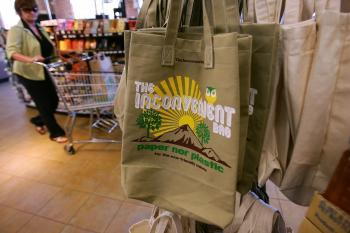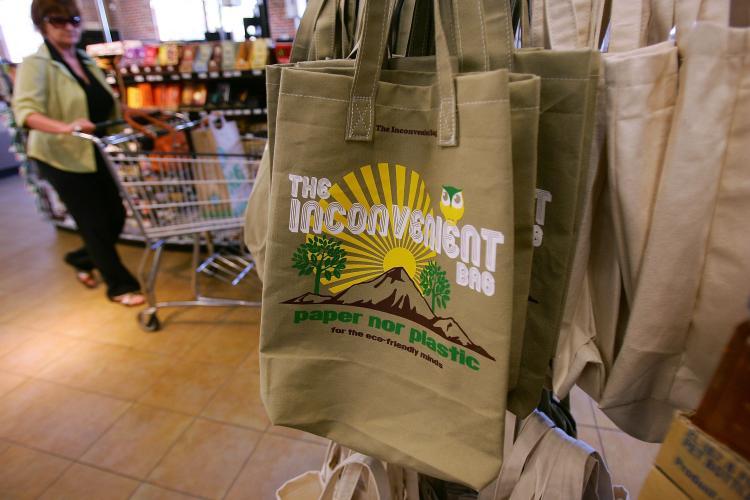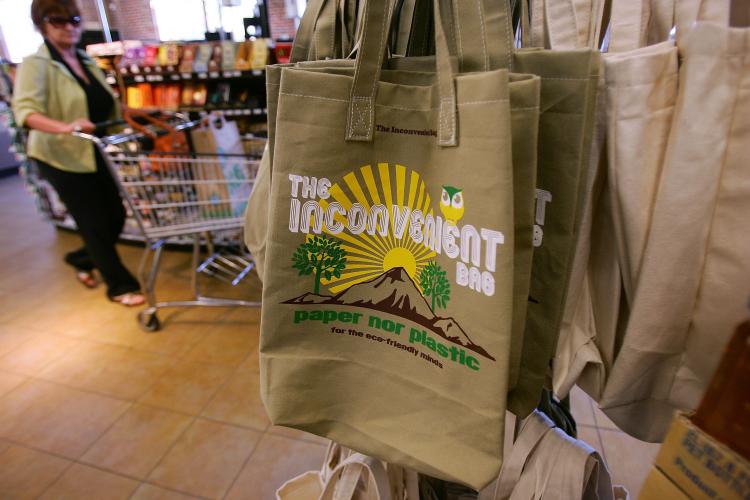It could turn you green, says a university study.
A new study reveals there is a health threat from reusable shopping bags, according to researchers from the School of Public Health of Loma Linda University in California and the University of Arizona. The threat could be neutralized by simply washing the bags, but few people think of doing that.
Professor Charles Gerba, a soil and water specialist at the University of Arizona, collaborated with other researchers, who found that cross contamination of food often happens when people handle produce and meat that they prepare at home.
“Most foodborne illnesses are believed to originate in food prepared or consumed in the home,” he wrote in the report.
Since 1998, the California Legislature has been promoting reusable bags as a substitute to plastic bags, of which only 5 percent were being recycled up until 2007. Plastic bags may take over 1,000 years to naturally degrade, according to reports. They could take up a lot of space in landfills, and they are harmful to marine life when they are discarded in water.
After finding few practical ways to recycle plastic bags, people began to promote reusable, biodegradable bags. For example, Trader Joe’s grocery chain does not offer plastic bags but sells reusable cloth bags.
However, now that biodegradable bags, also known as “green” bags, have been in regular household use in the United States, researchers have found a flaw. Over 97 percent of the people who were randomly interviewed at grocery stores said they did not wash or sanitize their reusable bag, and almost everyone said that they used the bag for multiple purposes.
The report stated that almost all of the bags contained some form of coliform bacteria, which includes E. coli and other harmful pathogens that could cause serious health risks and in some cases even death. E. coli was found in half of the total bags tested. The report said that a thorough wash could eliminate 99.9 percent of all food-borne bacteria.
Children or people with suppressed immune systems, like frail elderly people or people undergoing chemotherapy, can be seriously harmed or even die from exposure to pathogens from food.
Out of the three cities surveyed, Los Angeles, San Francisco, and Tucson, Ariz. had the most incidents with bacteria in carrying bags, due to the favorable situation for bacteria growth in the warm cities, said the researchers.
To reduce the risks, researchers said that labels should be placed on the bags describing the need to clean the bags. Users of the “green” bag should wash the bags weekly and should only carry groceries in the bag. Raw products such as meat or fresh produce should not be left in the car trunk for long and the bag should be cleaned after holding meat products.




